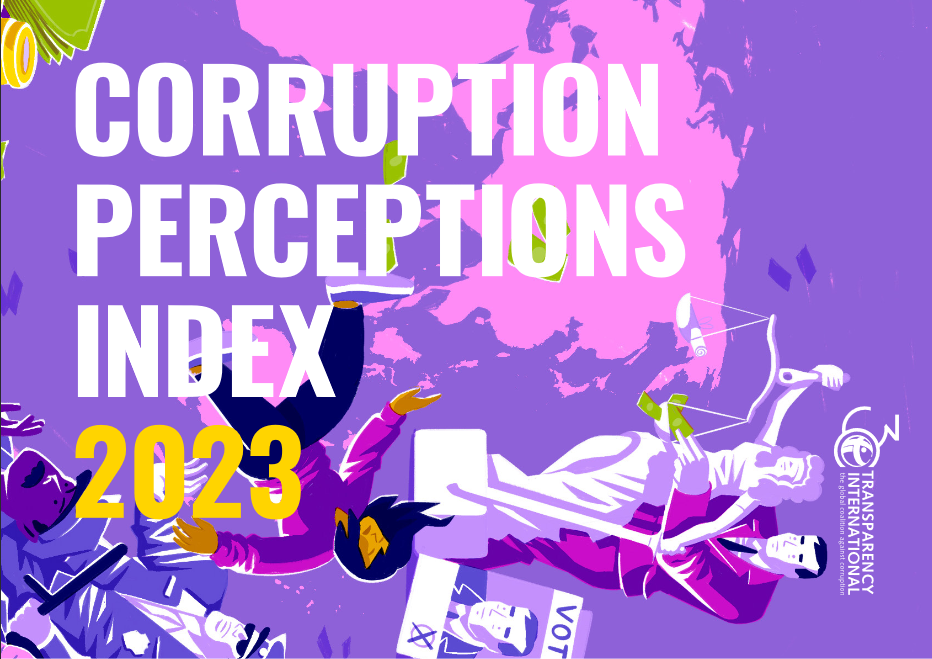In the third full year of the PPP/C’s government, perception of corruption in the country remains the same as last year’s low score in the Transparency International (TI) Corruption Perceptions Index (CPI) Report 2023.
Last year’s report had concluded that the country had improved slightly and had given it a score that saw it one point hig
her than 2021’s score.
This year Guyana has again scored 40 points but ranks at 87 out of 180 countries compared to its rank of 85 last year. In 2021 the country went down by two points from the previous year with a score of 39 and ranking of 87 out of 180 countries.
However, forty points is a low score.
Guyana still remains way below the leaders in the region, Barbados and The Bahamas. Barbados has a score of 69 and ranks 24 out of 180 countries. Guyana is also below Jamaica and Trinidad and Tobago. The only CARICOM country that Guyana is ahead of is Haiti which registered a score of 17 and a ranking of 171. Guyana shares a similar score and ranking with neighbouring Suriname.
According to the report a country’s score is the perceived level of public sector corruption on a scale of 0-100, where 0 means highly corrupt and 100 means very clean.
And a country’s rank is its position relative to the other countries in the index. Ranks can change merely if the number of countries included in the index changes. The rank is therefore not as important as the score in terms of indicating the level of corruption in that country, the report indicated.
The 2023 Corruption Perceptions Index (CPI) shows that corruption is thriving across the world.
According to the report over two-thirds of countries scored below 50 out of 100, which strongly indicates that they have serious corruption problems. It said that the global average is stuck at only 43, while the vast majority of countries have made no progress or declined in the last decade. What is more, 23 countries fell to their lowest scores to date this year.
And TI pointed out that the global trend of weakening justice systems is reducing accountability for public officials, which allows corruption to thrive.
“Both authoritarian and democratic leaders are undermining justice. This is increasing impunity for corruption, and even encouraging it by eliminating consequences for criminals. Corrupt acts like bribery and abuse of power are also infiltrating many courts and other justice institutions across the globe. Where corruption is the norm, vulnerable people have restricted access to justice while the rich and powerful capture whole justice systems, at the expense of the common good,” the report added.
It said too that countries ranking high on the CPI have an impunity problem of their own, even if this isn’t reflected in their scores. And many cross-border corruption cases have involved companies from top-scoring countries that resort to bribery when doing business abroad. Meanwhile, others have implicated professionals who sell secrecy or otherwise enable foreign corrupt officials.
“And yet, top-scoring countries often fail to go after perpetrators of transnational corruption and their enablers,” the report noted.
The report concluded that every region is either stagnant in its overall corruption efforts or showing signs of decline. However, a few countries have significantly improved their scores in the last decade, showing that progress is possible in any environment.





